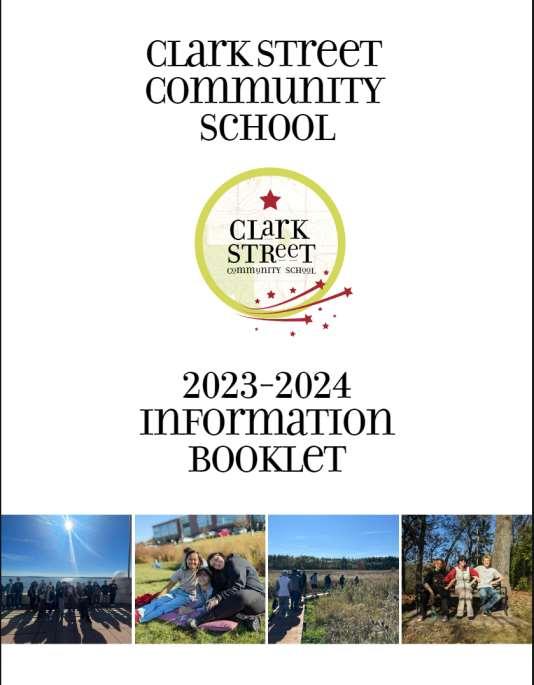
Clark Street Mission
The Mission of Clark Street Community School is to democratically cultivate a community of engaged learners, serve as a resource for educators, and a catalyst for reform in education throughout our region and our nation.
Message from the Principal
Our world is changing at an increasingly rapid pace. A deep understanding of self, an ability to collaborate with others in a manner which harnesses the power of diverse thought and experience, and the ability to sustain complex growth and change over a long period of time will be the skills needed for long term success. For over a decade, Clark Street Community School has been delivering on the promise of our mission to cultivate a community of engaged learners and has been producing graduates with both high levels of academic skills and skills and mindset that have helped them thrive in our ever changing world.
If you are ready to explore a different way of doing school, one which asks you to step into your educational experience in a very active, engaged manner where you will take the lead in designing your path to the future you want, we encourage you to learn more about CSCS and consider if it is the right choice for you. If you are ready to be a part of shaping the future of education while developing the skills for success in any future you choose, we would love to have you join our CSCS community!
Your partner in learning and growing, Jill GurtnerSeminars
All students must demonstrate their understanding of critical learning standards (elements) across all subject areas in addition to completing a Proficiency Portfolio.
• A Proficiency Portfolio is a collection of your work that meets all proficiency standards on a rubric after going through multiple iterations of peer feedback, revisions and staff feedback in the areas of: Writing, Reading, Research, Public Speaking and Math Modeling.
• Elements (content standards) are met through work done in interdisciplinary seminars or personalized projects which include: discussions, projects, presentations, writing, etc.
• Students have an Advisor who supports you in developing your personalized learning plan and helps you ensure you are meeting progress expectations for graduation.
The seminars listed below are some that have been offered regularly:
Art Survey
Integrates: Art, Local History, Art History, Analytical Writing Students will Produce: Art pieces, annotations of informative texts and an informative writing piece In this seminar students will explore a variety of art genres and artists, create our own works of art, and explore art experiences in our local community (e.g. theater, dance, film, music, studio visits, museum exhibits, etc.). Students can expect to read about different artists and art movements, engage in and analyze art experiences, create their own works when applicable, write and reflect, and engage in regular discussions with the class. Students can expect to work individually and collaboratively to develop artwork that will be exhibited in and outside of CSCS.
Atmosphere: Weather and Climate
Integrates: Space and Earth Science, Physics and Algebra II Students will Produce: An argument, informative or scientific writing piece and an algebraic math model
This seminar will concentrate on finding answers to questions related to weather and climate by using advanced math concepts. The math model for this class is an authentic climate model developed by atmospheric scientist, David Lorenz, from the University of Wisconsin.
Clark Tank: Social Entrepreneurship & the Future of Work Integrates: Economics, Business, Leadership and Public Presentation
Students will produce: A marketing pitch, a business plan, a proto type and a technical writing piece In this seminar, in partnership with Madison College Center for Entrepreneurship, students will be developing socially minded business ideas and preparing to ‘pitch’ their ideas at the MATC 2023 High School Video Pitch Competition. (Big bucks for big winners!!!) Expect to make lots of community connections, while you engage in public speaking, pitching, budgeting, graphic design/branding, and collaboration. Come with ideas and be willing to step into the work required to be your own boss, design your life, design a better future for you and your community.
Earth Science: Natural Disasters Integrates: Statistics, Probability and Earth Science
Students will produce: Scientific and narrative writing pieces and a probability math model Earth is a dangerous place to live, but it's the only home we have! Throughout history, humans have found themselves at odds with Mother Nature. Oftentimes when disaster strikes, we are reminded of how very small we are in comparison to the forces affecting our planet. Natural disasters happen multiple times daily, in many forms around the globe earthquakes, tsunamis, hurricanes, wildfires, blizzards, droughts, meteor strikes, and floods take a heavy toll on the living. AND there is strong evidence that climate change is increasing the frequency of many natural disasters. Together, we’ll explore and evaluate the science behind these events and create a math model to investigate shifts in frequency.
DIY: Cigar Box Guitars
Integrates: Physics, Algebra, US History, Art
Students will produce: An annotated informational text, An Informational Writing Piece, a Cigar Box Guitar
In this seminar we will be learning about the history and current popular culture surrounding cigar box guitars including the history of Blues from its African roots to its modern inception. We will look at the way music can be used to tell untold stories and protest unfair treatment and we will explore the way music can share the attitudes and values of people over time. We will also be exploring the physics and math of musical scales. All students will earn a math model answering the question, “What are the best mathematical intervals to produce a pleasing scale?” Finally, each participant will build and learn to play their own cigar box guitar and will write lyrics and craft an original song.
The Collision between Ethics, Race and Poverty: The Immortal Life of Henrietta Lacks Integrates: Biology, Social Issues, Research, Public Presentation, Literature Students will produce: An annotated informational text, an annotated literature text, a research piece and a presentation In this seminar we will read The Immortal Life of Henrietta Lacks and examine the intersection of race, poverty and access to health care from the 1950s to today. The book provides the opportunity for us to examine many current science issues, including cell cloning, gene editing, the birth of bioethics, and the legal battles over who controls our biological make up and materials.
Film Studies and Production 1
Integrates: History and Analysis of Films, Social Issues, Creation and Critique of Films
Students will produce: An annotated informational text and several films of varying lengths In this seminar we will explore film from a variety of perspectives. Our focus will be on the history of film, the “language of film”, film narrative, representation and depictions. We will be experiencing film as a viewer, producer, director, performer, and editor. We will have a film festival at the end of the term.
Frank Lloyd Wright
Integrates: Literature analysis, research, local history and art.
Students will produce: An annotation of literature, an annotation of informational text, a narrative writing piece, a research piece, and an art piece
Frank Lloyd Wright is considered one of the most noted architects in the world because of his unique style that is inspired so directly by nature. Did you know that this architectural icon lived, worked, studied and designed within an hour of our school? In this seminar we will read the novel
Loving Frank which is a blend of fiction and history and tells of the life and time between Wright and his partner Mamah Borthwick. We will conduct research on Wright and his work through reading, site visits, and guest speakers. Students can expect to choose an independent lens that they will focus their research on and develop projects based on this.
Globetrotters - A World Tour Through Short Stories
Integrates: Geometry, Literature, World History and Geography.
Students will produce: A geometric math model, an annotation of a literature piece, a presentation and an argument writing piece
Travel the world without ever leaving Clark Street. Join us as we explore short stories from different regions across the globe. We will first learn about the people, the culture, and the land to gain a richer understanding of each tale. We’ll explore maps and use geometry to help us make travel plans to visit different destinations efficiently. Get ready for some distance and midpoint formulas! The seminar will culminate in students presenting on a chosen county. Despite our many differences, this class will help students celebrate our diversity and recognize that we all belong to one world.
I am From: The Role of Place and Local Culture in Your Life
Integrates: Social Studies, Literature and Cultural Studies
Students will produce: An annotation of literature, an annotation of informational text and a narrative writing piece Does it matter if we grow up in different regions of a particular city, state or country or whether we grow up in a large metropolitan city or a rural town? How does where we
grow up impact the things we say, do, believe and make? In this seminar, we will explore the links between place, local culture and identities by: investigating, documenting and representing our own community( ies); reading a variety of short informational and narrative texts; writing about our own experiences; and reading and analyzing the novel The Absolutely True Diary of a Part Time Indian.
To Infinity and Beyond
Integrates: Algebra, Geometry, Trigonometry and Chemistry Students will produce: An algebraic math model, a geometric math model and an informative writing piece Enter a world where infinite numbers can add to 5 or 37 or infinite finite possibilities. Where else does the imaginary become real and back to imaginary again? Explore the math and art of fractals, Fibonacci, infinity, and imaginary numbers. Escape the dreary by exploring patterns in nature and creating art from equations. This seminar is open to students with all math backgrounds. You choose your path from plotting points to calculus equations. This seminar is for students who like art, patterns & puzzles and stretching their brain to explore math & art in a new context.
Making Waves
Integrates: Physics, Geometry, Trigonometry, Literacy and Writing
Students will Produce: An argument, informative or scientific/technical writing piece, a geometric or algebraic math model and an annotation of an informative text Dive in and learn about the properties and behaviors of waves. Mathematically model periodic motion of musical notes, jump ropes, swings, merry go rounds, Ferris Wheels, celestial orbits, or other repeating patterns of your choice. Explore trigonometry concepts that are used by architects, surveyors, astronauts, physicists, engineers and even crime scene investigators. Be prepared to spend some of our time outside as we explore math and science concepts.
Mud Pie: A Laboratory in Innovation, Creativity, and Kitchen Sink Science
Integrates: Art, Literature, Research, Local Studies and Physics
Students will Produce: Informative and scientific writing, research piece, art piece and an annotation of a literary text Students will learn as researchers, artists, scientists and overall innovators. We will be reading Girl Decoded: A Scientist's Quest to Reclaim Our Humanity by Bringing Emotional Intelligence to Technology by Egyptian Scientist and Entrepreneur Rana el Kaliouby, and we’ll dabble in learning how to code with Dr. el Kaliouby’s encouragement. We’ll also explore the work and life of Israeli Scientist Neri Oxman and practice making our own biomaterials in support of her work. Expect to spend time outdoors, learn coding basics, and read about some amazing women who are breaking barriers in science, art, and business.
Multimedia Storytelling
Integrates: Reading, Writing and Creating Art
Students will produce: An annotation of literature, an annotation of informational text, a narrative writing piece and an art piece In this seminar we will work with both analog and digital media to collect and share stories about ourselves and the people, places and issues in our community (both inside and outside of Clark Street). While you will have an opportunity to propose and complete your own final project, you should also be prepared to: (1) Complete a series of exploratory challenges to develop a basic understanding of key words, techniques, and processes associated with different genres of storytelling; (2) Share your work with and give feedback to other students; and (3) View and analyze stories produced via a variety of formats. The formats we will explore include, but will not be limited to, photo essays, interactive stories, comics, spoken word, short story writing, and puppetry.
Music and Memory
Integrates: Biology, Social Issues, Local Studies and Health
Students will produce: A narrative and an argument writing piece, and an annotation of an informational text. The Music and Memory seminar is the continuation of a partnership with the Wisconsin Music & Memory Program via
the Department of Health, the Wisconsin Alzheimer’s Institute, The Aging and Disability Resource Center, and the University of Wisconsin Madison. Students in this seminar will learn about the work of the Music & Memory Program that brings personalized music to individuals with Alzheimer's disease and other related dementias. This seminar will include multiple field experiences where we partner with nursing homes, experts studying the power of music to impact the brain, and businesses and community leaders who have led the way in Middleton becoming certified as a Dementia Friendly Community.
Physics: Crash Physics
Integrates: Physics, Advanced Algebra and Trigonometry
Students will produce: An annotation of informational text, a geometric math model and argument writing piece. Car crashes, archery practice, trigonometry, oh my! Particle colliders, State Troopers, math models, accident reconstruction, concussion arguments, Newton: all of these topics can help us to understand the natural world we live in. We’ll be exploring motion related concepts through traffic accident reconstruction with a Wisconsin State Trooper, demonstrating projectile motion through archery lessons, and we may even throw in some Mythbusters to increase our modeling abilities. We’ll make time to explore the impact that collisions and concussions in sports are having on athletes’ health and to develop argument writing complete with counter arguments centered around this controversial topic.
Play in the Woods
Integrates: Literature, public speaking and historical analysis
Students will produce: An annotation of literature, an annotation of informational text and a narrative writing piece Having the American Players Theatre (APT) in the area is too great an asset to pass up. Each year CSCS chooses a play that is being performed at APT. Students will read the play, perform parts of the play, and then go to the woods and watch the performance. Past plays have included Macbeth, Othello and Raisin in the Sun
Prove It
Integrates: Geometry, Algebra, Writing and Public Speaking
Students will produce: An annotation of literature, an annotation of informational text, a geometric math model, an argument writing piece and a presentation
How many times have you lost an argument? A few times? All the time? Never? In this seminar, we will be looking at the art of argument through curiosity, geometry, and rhetoric. We will be using current events to analyze argument technique while also reading fiction to connect these rhetorical techniques to mathematical argument. Finally, we will end the seminar with a personal argument piece.
RadioActive
Integrates: Literature, Chemistry, Physical Science and Scientific History
Students will produce: An argument writing piece and a robust annotation of literature
What happens when atoms don’t behave in the way we expect? How do humans make sense of events beyond the current limitations of our understanding? The chemistry between Marie and Pierre Curie allowed them to transcend the boundaries of the scientific knowledge of their time and to make discoveries related to Radium, Polonium, and Uranium. Through the novel Radioactive, we will uncover how the chemistry of radioactivity relates to popular culture, espionage, and even chemical warfare.
Rates, Areas, and Volumes: An Intro to Basic Calculus
Integrates: Calculus, Geometry and Writing
Students will produce: Up to three math models, an informative writing piece, an argument writing piece, a narrative writing piece or a technical writing piece
Students will earn: 8 elements
In this seminar, we will be learning the basics of calculus a field that has countless real world applications and is increasingly required as a prerequisite to more college majors. Calculus is used in physics, natural sciences, engineering, economics, statistics, and medicine. We all have learned about basic cubes, cylinders, and cones, but real world shapes are more complex. We will learn how
to transform a one dimensional equation into two unique dimensional areas and three dimensional shapes. In addition to modeling complex shapes, we will also explore movement.
Rocket Science
Integrates: Physics, Writing, and Advanced Algebra
Students will produce: An algebraic math model, annotation of an informational text, and an informative, technical, and technical writing.
3...2...1… Blast off! From SpaceX and Blue Origin to Katherine Johnson & Neil Armstrong to the ancient Chinese rocketeers, the humans have long been fascinated with launching objects into the air. In this seminar, you will be working with a TEAM of your peers to design, launch, study, and analyze rockets. Students will be engaging in the engineering and design process to understand and test how a rocket moves, how we can model it with mathematics, and eventually, how we can document and share our results. This seminar will rely heavily on working in teams, understanding mathematics and science concepts, and communicating with peers.
See Me, Hear Me: Telling Stories through Art and Writing Integrates: Art, Writing, and Identity Reflection Students will produce: Art and narrative writing pieces
For many, art inspires writing. For others, writing inspires art. The symbiotic relationship of writing and art is one that inspires, encourages and provokes us all. Be part of a seminar where our study of literary and artistic works will guide us as we practice narrative writing and develop visual representations through mixed medium art techniques. Get ready to write pieces such as the 6 Word Memoir, First Things First, Encyclopedia of an Extraordinary Life and a Personal Narrative. We will focus on photography and mixed media techniques that include painting, drawing and collage.
Stuff Matters
Integrates: Chemistry, Literature, Art and Writing
Students will produce: Annotation of an informational text, an informative writing piece and a technical writing piece, Are you an artist, a chemist or a maker of things? When you “play,” what’s your favorite material to work with? Where
did it come from? How do your materials work together? Questions to consider include: What is it about a spoon that makes it so that you can taste any food on it but not taste the spoon? Why is it that a razor blade cuts while a paper clip bends? Why can you see through glass, but metals are opaque? Answers to these questions lie in an understanding of materials science, a mixture of the physical, chemical, and life sciences. Once we have a solid base in the chemical and physical, we will move on to design our own art.
Weaving Our Stories
Integrates: Geometry, Global Studies and Art
Students will produce: An annotation of an informational text, a research piece, an informational writing piece and a fabric art piece
Our histories are wrapped in the fabrics of our lives from clothes we wear, the baby blanket we had, and the quilts we lay on. In some cultures the stories are woven into fabric as they are told aloud. In this seminar, we will be diving into the stories of cultures both near and far as we create our own stories through quilting. Students will have the opportunity to research topics around textile art, create their own quilted piece and look at the mathematical connections within.
Winter Fun: Maintaining Wellness in the Dark Days
Integrates: Resistance, Cardio, Health and Writing
Students will produce: An annotation of an informational text and informational and narrative writing pieces
Although winter starts off with celebrations during the holidays, it can be challenging to stay happy and healthy during the short, cold, gray days. Be prepared to move everyday – inside and outside. We will explore the community and visit yoga studios, fitness centers, skating rinks, hiking trails and sledding hills. You will record your wellness progress throughout the term with a journal (or photo journal!). You will also review your daily entries and write a summative reflection of your growth and wellness.

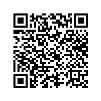
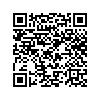


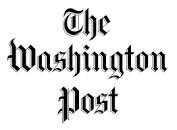

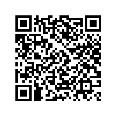
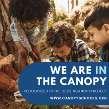

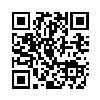
 National Leaders of the Mastery Transcript Consortium
National Leaders of the Mastery Transcript Consortium
Article featuring CSCS being awarded Schools of Opportunity Gold Recognition
National Leaders of the Mastery Transcript Consortium
National Leaders of the Mastery Transcript Consortium
Article featuring CSCS being awarded Schools of Opportunity Gold Recognition